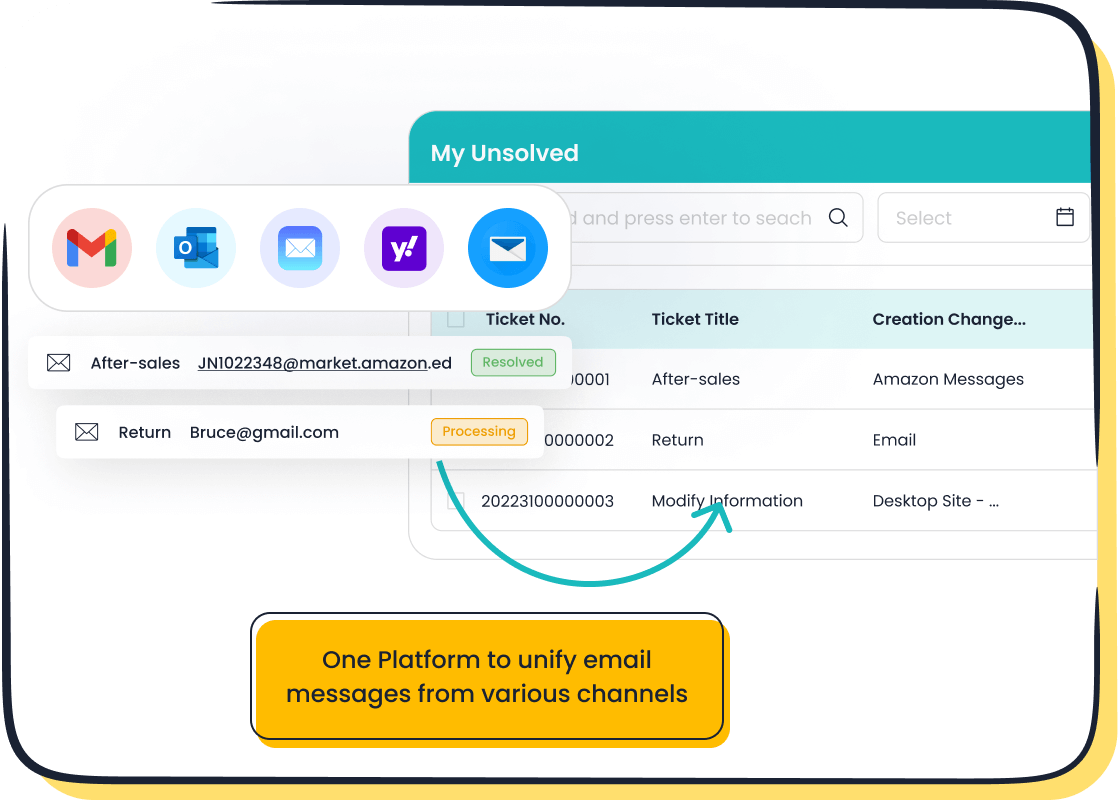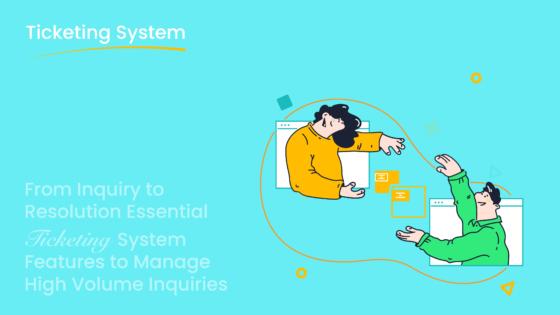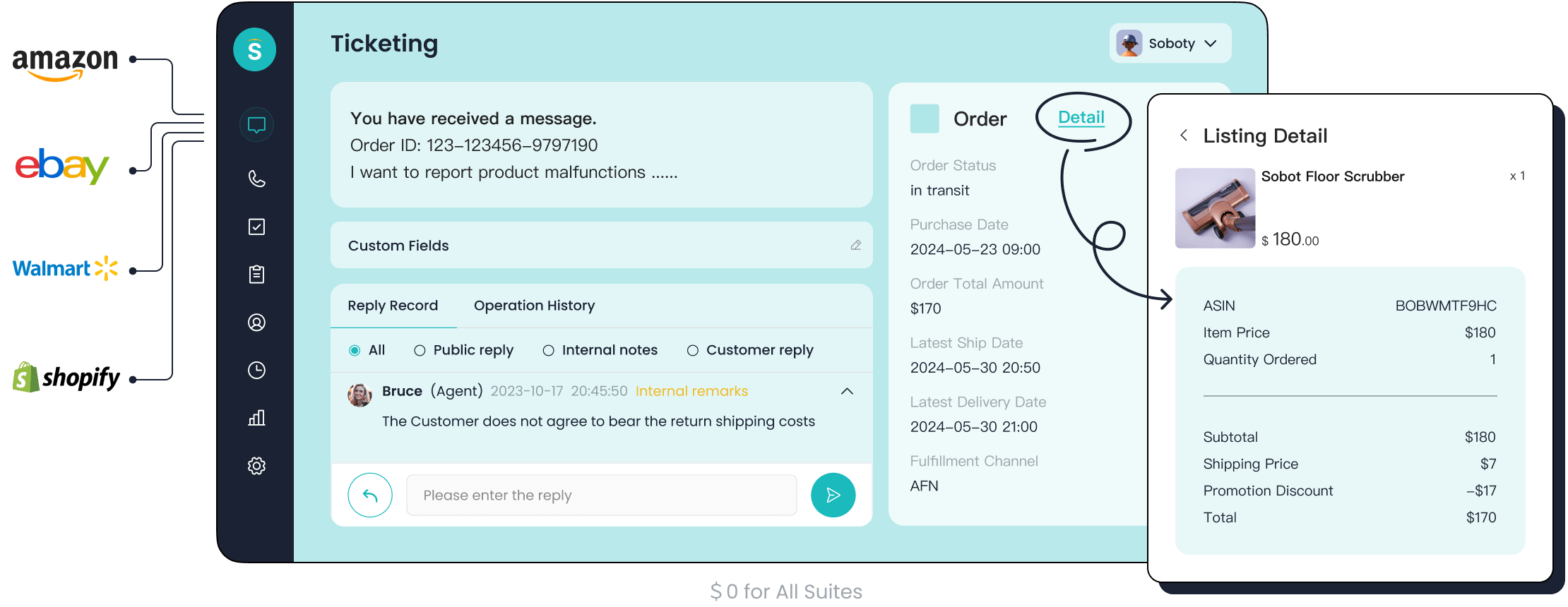How Customer Service Email Management Is Evolving in 2025

Customer service email management continues to transform in 2025 as businesses invest in AI, omnichannel integration, and personalized support. Companies see customer satisfaction rise when they use AI-driven solutions, with omnichannel support leading to higher retention and faster response times. Sobot AI empowers customer service teams to deliver efficient, unified experiences across every channel. Adopting advanced systems like the Sobot call center helps businesses keep pace with emerging customer service trends and meet rising customer expectations.
AI Trends in Customer Service Email Management

Artificial intelligence is reshaping customer service email management in 2025. Companies now rely on advanced AI to streamline workflows, improve satisfaction, and deliver a seamless customer experience. The rise of conversational AI, generative models, and automation tools has set a new standard for customer service. Businesses that embrace these technologies see measurable gains in efficiency and customer loyalty.
AI Automation
AI automation stands at the core of modern customer service. Natural Language Processing (NLP) advancements allow AI to understand and generate human-like language, making automated email responses more accurate and engaging. Agentic AI introduces autonomous reasoning, enabling systems to manage complex tasks such as email triage and prioritization without human input. Robotic Process Automation (RPA) now handles routine email tasks with speed and precision.
Key trends in AI automation for customer service email management include:
- AI-powered burnout detection helps maintain agent well-being, which leads to more consistent and high-quality email responses.
- Predictive analytics anticipate customer needs, allowing proactive and personalized communication.
- Sentiment analysis and speech analytics help AI understand customer emotions in emails, resulting in more tailored responses.
- Omnichannel support ensures that customer interactions remain seamless across email, chat, voice, and social media, preserving context and improving the overall experience.
AI automation reduces response times by handling repetitive inquiries, freeing agents to focus on complex issues. Consistency and accuracy improve through the use of templates and a well-maintained knowledge base. Escalation rules ensure that complex issues reach human agents quickly, with full context, preventing frustration. Continuous updates and training of AI models based on customer feedback optimize performance and resolution rates. Integration with CRM and ticketing systems supports efficient workflows and inquiry handling.
Companies using AI automation report significant improvements. For example, Yellow.ai achieved 90% automation within 30 days, increasing customer satisfaction by 40% and agent productivity by 50%. The platform reduced ticket volume by 85% and improved first call resolution rates by 20%. These results highlight the power of AI in transforming the customer service experience.
Generative AI for Email
Generative AI has revolutionized how companies handle customer service emails. These models craft personalized replies by analyzing customer data, previous interactions, and the context of each inquiry. This enables tailored, context-aware communication that feels human and empathetic.
Generative AI brings several benefits to customer service:
- It drafts personalized responses by analyzing customer data and sentiment, ensuring each reply aligns with brand guidelines and maintains a consistent tone.
- AI acts as an agent copilot, providing real-time information about customer preferences and history, leading to faster response times and higher satisfaction.
- The technology auto-generates replies by understanding queries and sourcing answers from multiple databases, allowing for detailed and accurate responses.
- Agents can expand brief replies into comprehensive messages, saving time and enhancing communication quality.
- Human oversight remains essential, as agents review AI-generated content to ensure accuracy and reduce misinformation risks.
Generative AI reduces total ticket volume by 35%, decreasing support backlog. Response times drop by 20%, leading to higher customer satisfaction. Automation rates reach 66%, improving operational efficiency. Customer satisfaction increases by 9.44%, enhancing the overall experience. AI automates over 80% of customer interactions while maintaining high-quality, personalized responses. The technology supports over 30 languages with automatic detection and integrates with backend systems for real-time customer data access.
A financial services company, for example, uses AI to respond to loan inquiries with personalized emails that address unique customer financial profiles. AI can also send follow-up emails recommending additional services based on customer behavior. Salesforce reports that personalized email campaigns generate six times higher transaction rates than non-personalized ones. These features collectively improve the quality and personalization of customer service emails, leading to increased satisfaction and loyalty.
Sobot AI Capabilities
Sobot’s AI-powered Ticketing System exemplifies the future of customer service email management. The platform leverages conversational AI and automation to streamline communication, reduce manual effort, and enhance satisfaction. Sobot AI enables companies to reduce ticket volumes, resulting in cost savings of up to $1.3 million. The system provides 24/7 support and automates tasks, which boosts operational efficiency.
Sobot’s AI analyzes customer feedback from multiple channels to improve satisfaction scores. This allows companies to identify trends and take targeted actions. The Ticketing System drafts polished and empathetic emails that resonate with customers. AI streamlines communication by enabling rapid, personalized responses that maintain a consistent brand voice and tailor messages to individual customer histories. This empathetic and accurate tone improves satisfaction and loyalty.
Sobot’s AI reduces errors and manages high inquiry volumes without sacrificing quality. The platform optimizes workflow and fosters deeper customer connections through timely and compassionate email correspondence. Businesses using Sobot’s AI-powered Ticketing System report up to a 68% reduction in staffing needs during peak seasons and a 25% increase in satisfaction. AI manages up to 95% of all customer interactions by 2025, leading to faster, personalized support and lower operational costs.
The Ticketing System integrates email, voicemail, and chat into a single platform for seamless ticket management. It automatically routes tickets to the right agents based on custom triggers. AI-powered ticketing enhances management and resolution, while SLA reminders and trusted analytics ensure high accuracy and satisfaction. The system supports multiple languages, allowing customers to raise tickets in their preferred language. Comprehensive analytics and smart notifications help monitor and measure performance.
Sobot’s commitment to innovation, customer-centricity, and efficiency positions it as a leader in ai customer service. The platform’s conversational ai, chatbot, and ai-powered automation capabilities deliver a superior ai-driven customer experience. Companies that adopt Sobot’s solutions gain a competitive edge by improving customer service, reducing costs, and increasing satisfaction.
Tip: Businesses that invest in advanced AI solutions like Sobot’s Ticketing System can expect measurable improvements in customer service email management, including faster response times, higher satisfaction, and greater operational efficiency.
Omnichannel Customer Service Integration
Unified Communication
Unified communication stands at the heart of modern customer service. Companies now connect with customers through email, chat, social media, and voice, all from a single platform. This approach eliminates the need for customers to repeat information, ensuring every interaction feels seamless and personal. Teams gain real-time access to customer data, which helps them resolve issues quickly and accurately. Unified communication brings several key benefits:
- Improved customer satisfaction by delivering consistent and personalized support across every channel.
- Enhanced personalization of customer interactions, leading to higher retention and loyalty.
- Increased team productivity and reduced operational costs, as agents handle simple queries efficiently.
- Centralized data provides deeper insights into customer behavior and support team performance.
- Timely, proactive communications meet customers in their moments of need.
Unified communication also improves employee experience. Agents collaborate more easily, reducing bottlenecks and speeding up issue resolution. Metrics like Average Handle Time and First Contact Resolution improve, which boosts both customer satisfaction and agent productivity.
Sobot Ticketing System

The Sobot Ticketing System enables businesses to manage customer interactions across email, chat, social media, and voice in one AI-driven workspace. The system consolidates tickets, messages, and customer data from multiple channels, creating a unified inbox for customer support teams. Sobot supports real-time messaging, live chat, chatbot, and email, as well as social media interactions and FAQs. The platform integrates customer and order details from e-commerce platforms like Shopify, enriching every customer interaction.
AI-generated responses, rule-based triggers, and multi-language support ensure that customers receive immediate and personalized support. Real-time translation helps teams serve a global customer base. Workflow automation and analytics allow supervisors to monitor performance and optimize resources. Customization and automated responses deliver fast, accurate solutions, improving both customer satisfaction and operational efficiency.
Real-World Example: Opay
Opay, a leading financial service platform, transformed its customer service by adopting Sobot’s omnichannel solution. Before implementation, Opay faced challenges managing high volumes of customer interactions across email, social media, and voice. After integrating Sobot’s Ticketing System, Opay saw customer satisfaction rise from 60% to 90%. The company also achieved a 35% increase in Net Promoter Score and a 15% boost in conversion rates. These results highlight the power of unified customer support in driving satisfaction and loyalty. Opay’s experience demonstrates how Sobot’s omnichannel capabilities help businesses deliver consistent, high-quality support and build lasting relationships with customers.
Personalization in Customer Service Emails
Hyper-Personalized Responses
AI and machine learning now drive hyper-personalized responses in customer service emails. These technologies analyze customer behavior, preferences, and context to deliver tailored messages that feel relevant and timely. Companies use real-time personalization to adjust content based on immediate customer actions, which increases open and click rates. Hyper-personalization enhances customer engagement by making each customer feel understood and valued.
- AI adapts to real-time customer data, proactively suggesting products or solutions before customers even ask.
- Large language models and CRM data enable highly relevant, context-aware responses.
- Personalized follow-ups, such as reminders for abandoned carts or special offers, improve retention and satisfaction.
- Companies must balance advanced personalization with privacy, ensuring compliance with regulations like GDPR.
A table below shows the impact of hyper-personalization on customer engagement and loyalty:
| Metric/Example | Description |
|---|---|
| Revenue Growth | Hyper-personalization can increase revenue by 10-15% on average; some companies see 5-25% growth. |
| Customer Retention | Personalized experiences improve loyalty, repeat purchases, and customer lifetime value. |
| Market Share & Customer Success | Companies excelling in personalization generate 40% more revenue from these activities than average. |
| Starbucks Case Study | Created 400,000 personalized email variants weekly, boosting engagement and loyalty. |
Data-Driven Insights
Data-driven insights play a crucial role in improving customer service email personalization. By segmenting and analyzing customer behavior, companies can tailor recommendations and communications to individual needs. AI-powered tools automate this process, making responses more dynamic and responsive.
- Monitoring key metrics like response times and email volume helps optimize team productivity and meet service level agreements.
- Integrating data from sales, support, and engineering provides a comprehensive view of customer interactions.
- Using customer data such as demographics, purchase history, and feedback enables targeted campaigns at every stage of the journey.
Sobot’s Ticketing System leverages analytics to track performance, automate workflows, and deliver actionable insights. This approach ensures that every customer receives a personalized experience, improving satisfaction and loyalty.
Multilingual Support
Providing multilingual support in customer service emails is essential for global businesses. AI-driven chatbots with real-time translation offer instant support in multiple languages, ensuring clear communication for all customers.
- Companies use multilingual templates and translation tools to streamline responses.
- Diverse support teams and cultural sensitivity training help deliver respectful, effective service.
- Sobot’s Ticketing System supports multiple languages, allowing customers to submit tickets in their preferred language and receive accurate, timely responses.
This multilingual capability enables businesses to engage customers worldwide, enhancing the overall customer service experience and building stronger relationships.
Automation and Human Touch Balance
Automated Workflows
Automated workflows have become essential in customer service. They streamline repetitive tasks like ticket routing, case prioritization, and follow-ups. AI-driven tools handle these processes quickly, which leads to faster response times and lower operational costs. Automation frees agents from routine work, allowing them to focus on complex customer support issues. Standardized workflows also reduce human error and ensure consistent service quality. Companies can scale their support operations without increasing headcount, handling more tickets efficiently. Data analytics from these workflows help teams make better decisions and optimize support processes. For example, Jenzabar improved efficiency by automating case assignments and escalation, letting agents spend more time on problem-solving.
Empathy in Email Support
Empathy remains a cornerstone of effective customer service, even in automated conversations. AI systems now use event-based triggers to send timely, relevant emails based on real user actions. Micro-celebrations, such as congratulating customers on milestones, make users feel recognized. Automated messages use friendly, supportive language and address customers by name, which adds a personal touch. Including self-service resources and clear next steps in emails empowers customers and reduces frustration. Empathetic phrases like “We understand this can be frustrating” help automated replies feel caring and human. These techniques ensure that automated customer support does not feel robotic or impersonal.
Hybrid Support Models
Hybrid support models combine the strengths of AI and human agents. AI-powered chatbots resolve routine questions instantly, providing 24/7 self-service and proactive support. When issues become complex or emotionally charged, AI uses sentiment analysis to escalate cases to human agents. Human agents then deliver empathy, critical thinking, and personalized solutions. This seamless transition prevents customers from getting stuck in automated loops. The hybrid approach improves efficiency, scalability, and customer trust. Companies like Amazon use AI chatbots to handle up to 70% of inquiries, while human agents focus on high-value interactions. Regular training and clear escalation pathways ensure that customer support teams work effectively alongside automation.
Tip: Businesses should regularly review performance metrics like response time and customer satisfaction to maintain the right balance between automation and human touch.
Security and Compliance in Email Management

Data Privacy
Data privacy remains a top priority for customer service teams in 2025. Companies must follow strict regulations to protect customer information during email management. Key laws such as GDPR, CCPA/CPRA, and the Digital Markets Act require organizations to obtain explicit consent before collecting or using customer data. Customers have the right to access, correct, or erase their data. Businesses must provide easy options to unsubscribe and exercise these rights. Consent management platforms automate the process, making compliance easier. Internal controls limit who can view or use sensitive data, reducing the risk of unauthorized access. Data minimization principles guide teams to collect only what is necessary and retain it for a limited time. Privacy policies need regular updates to reflect new laws and business practices. Ethical handling of data builds trust and strengthens customer support.
Note: Non-compliance with regulations like GDPR can result in fines up to €20 million or 4% of global turnover. Source
Compliance Standards
Companies must understand and follow international standards to maintain secure email management. Regulations such as GDPR, HIPAA, and CAN-SPAM set requirements for data protection and retention. Secure email archiving solutions store messages for required periods. Encryption and data loss prevention tools protect sensitive information. IT managers and compliance officers oversee policies, security, and audits. Tailored retention policies help meet legal and business needs. Cybersecurity best practices, including employee training, reduce risks. Email management systems preserve message integrity, supporting legal and audit processes. Preparation for eDiscovery ensures teams can retrieve emails quickly when needed. These strategies help companies maintain operational integrity and deliver reliable customer support.
| Compliance Standard | Key Requirement | Impact on Support Teams |
|---|---|---|
| GDPR | Explicit consent, data rights | Stronger data governance |
| HIPAA | Protect health information | Secure handling of records |
| CAN-SPAM | Unsubscribe options | Transparent communications |
Sobot’s Security Features
Sobot’s Ticketing System provides advanced security for customer data. The platform uses encryption protocols to safeguard information during transmission and storage. Customizable access controls and user permissions enforce strict data governance. User authentication mechanisms add another layer of protection. Sobot adheres to industry standards, ensuring sensitive data remains secure. The system supports compliance with global regulations, helping teams manage customer support with confidence. Regular updates and monitoring keep the platform resilient against emerging threats. Sobot’s commitment to security allows businesses to focus on delivering excellent support while protecting customer privacy. For more details, visit Sobot’s official website.
Best Practices for Adapting to Customer Service Trends
Technology Adoption
Customer service teams in 2025 must stay agile to keep up with emerging customer service trends. The most successful organizations follow a clear path when adopting new technology:
- Invest in scalable AI and automation to handle repetitive tasks and enable proactive support.
- Personalize every interaction using insights from CRM systems and analytics.
- Embrace omnichannel strategies to deliver seamless customer support across all platforms.
- Prioritize data privacy and transparency to build trust with customers.
- Blend AI efficiency with human empathy for complex issues.
- Maintain a flexible technology stack to adapt quickly to new tools.
- Use real-time feedback to drive innovation and improve service quality.
These steps help companies deliver a consistent customer experience and boost retention. By integrating self-service options, businesses empower customers to resolve issues independently, which increases satisfaction and reduces operational costs.
Agent Training
Continuous agent training remains vital as customer service trends evolve. Teams need both technical and soft skills to succeed. Training programs should focus on:
- Using AI productivity tools to automate complex tasks.
- Developing empathy and communication skills for personal interactions.
- Learning to manage omnichannel platforms and self-service resources.
- Staying updated on data privacy and compliance standards.
Regular coaching and feedback help agents adapt to new trends and deliver high-quality customer support. Well-trained agents can balance automation with a human touch, ensuring every customer feels valued.
Performance Analytics
Performance analytics drive improvements in customer service. Teams track metrics like reply times, open rates, and customer satisfaction. Analytics tools provide real-time alerts, helping agents respond quickly and improve the overall experience. By analyzing speech and text data, managers identify training needs and optimize staffing. Integrated analytics platforms prevent data silos and support strategic decisions. Companies that use analytics to monitor trends and customer support outcomes see higher engagement and better retention. Data-driven insights also help refine self-service options, making them more effective for customers.
Tip: Regularly review analytics to spot gaps and act quickly. This approach keeps customer service aligned with the latest trends and customer needs.
Customer service continues to evolve as new trends shape the future. AI, omnichannel integration, and personalization drive better customer service and higher satisfaction. Companies that use advanced solutions like Sobot’s Ticketing System see improved customer service and faster response times. These trends help teams deliver consistent satisfaction. Businesses should follow customer service trends and invest in ongoing learning to stay ahead.
FAQ
What is customer service email management?
Customer service email management refers to how companies organize, track, and respond to customer emails. Teams use tools like the Sobot Ticketing System to automate replies, assign tickets, and ensure fast, accurate support. This process improves customer satisfaction and operational efficiency.
How does AI improve customer service email management?
AI analyzes incoming emails, sorts them by topic or urgency, and suggests personalized responses. The Sobot Ticketing System uses AI to automate repetitive tasks, reduce response times, and maintain high-quality communication. This technology helps teams handle more requests with fewer errors.
Why is omnichannel integration important for customer service?
Omnichannel integration connects email, chat, social media, and voice into one platform. This approach ensures customers receive consistent support across all channels. The Sobot Ticketing System enables seamless communication, so agents can view every interaction and respond quickly.
How does personalization enhance customer service emails?
Personalization uses customer data to tailor each email response. AI-driven systems like Sobot’s Ticketing System analyze past interactions and preferences. This approach makes customers feel valued and increases satisfaction, leading to higher retention and loyalty.
Is the Sobot Ticketing System secure and compliant?
Yes. The Sobot Ticketing System uses encryption, access controls, and regular updates to protect customer data. It supports compliance with global standards like GDPR. Businesses can trust the platform to manage sensitive information safely and meet legal requirements.
See Also
Best Cloud-Based Contact Center Services Reviewed For 2024
Revealing Leading Cloud Contact Centers To Watch In 2025
How AI Customer Service Agents Are Transforming Support
Comprehensive Reviews Of Leading Contact Center Solutions 2024
